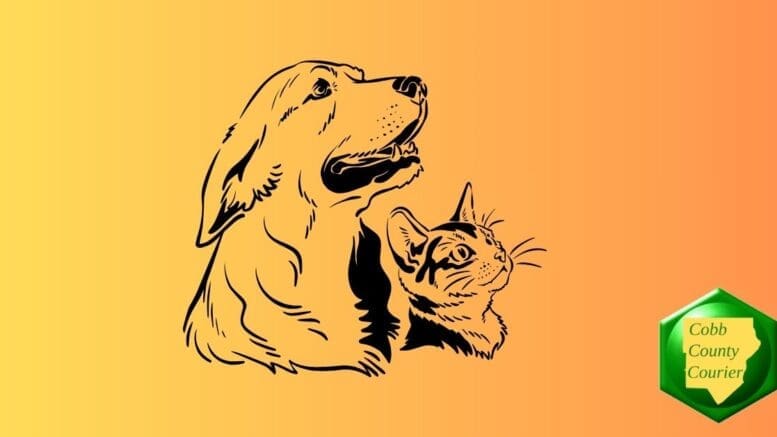By Kristen Burns
COBB COUNTY, Ga., – Stevie, a 3-month-old puppy, was taken in by the Homeless Pets Foundation in Marietta, Georgia, in June 2024. He is very playful and friendly and is one of many animals in a shelter that needs a loving family to take him in. There is one thing that is stopping people from wanting to adopt this sweet pup: he is blind in both eyes.
“When we heard about this case, the owner who had him didn’t want him once they found out he was blind,” said Ashley Good, the director of the Homeless Pets Foundation. “We took him in and we’ve just been struggling to get him adopted.
Stevie is one of many pets overlooked in the shelter system because of his disabilities. Dogs like Stevie are often seen as burdens to families looking to adopt. Whether it be because of their disabilities, age, or behaviors, dogs surrendered to shelters frequently have trouble getting rehomed into families willing to go the extra mile for them to live a valuable life.
Senior animals tend to stay in shelters for up to four times longer than younger pets, according to Pet Pardon. In the United States, 25% of senior dogs in shelters get adopted, compared to a 60% rate for younger dogs and puppies.
Steve Hammond, the director of Cobb County Animal Services, said large dogs have difficulty being rehomed because people can’t provide the resources it takes to care for them. Animals that need more attention are often surrendered to shelters because their owners cannot meet the financial or housing needs of the pet.
“With the housing crisis, it’s difficult for people because rent is going up,” said Hammond. “Pet deposits are going up. Some apartments can be $1,000 to $3,000 for a deposit plus a monthly fee.”
These animals that have been surrendered have trouble finding a second home because many families want to adopt younger, smaller pets or pets that need less medical attention.
Julie Henderson, an adoption counselor at the Humane Society of Cobb County told the story of Gabby, a 10-year-old terrier-chihuahua mix that has been with the Humane Society for an extended amount of time.
“She doesn’t act old, but she does have medical issues,” Henderson said. “She has a luxating patella and she takes daily medications, so her medications are going to run about two to three hundred dollars a month.”
Gabby is energetic for her age, but many people looking to adopt look past her because they aren’t willing to pay for the medical care she needs.
“Even people who say they are looking for smaller or older dogs tend to turn on pets like Gabby,” Henderson said.
A study conducted by Sloane Hawes, Josephine Kerrigan, and Kevin Morris, found many reasons why older animals are populating animal shelters. These writers, who have studied at the Institute for Human-Animal Connection, found that there has been an increased number of surrenders because of the illnesses and medical costs that come from a dog or cat aging. Owners will often surrender their animal when it becomes too challenging to care for their elderly pet, and in turn, the chance of that pet being adopted again decreases.
“We have people coming to the door here all the time just trying to dump their pets. Because we have limited space, we can’t take them in,” Henderson said.
If a shelter like the Cobb County Humane Society cannot take in these surrendered animals, they are either left out on the street or taken to municipal shelters like Cobb County Animal Services.
“If you are a Cobb County resident and you have an animal you don’t want – dogs, cats, guinea pigs, snakes – we take those in,” said Steven Hammond, the director of Cobb County Animal Services.
Although the animal services is open admission, the shelter still has a limited amount of space and staff to care for the animals that are surrendered, according to Hammond. The current maximum capacity at Cobb County’s shelter is 261, and they are currently holding around 200 animals (as of September 2024).
“Nobody comes in with an expiration date. We will keep them as long as we have space,” Hammond said. “If it comes down to it, if we know it is going to take a lot of time, then we generally will look at the health and prognosis of the animal.”
Animals that need more medical care often cannot be taken care of in municipal shelters like this since there are so many other animals that need basic care from the kennel’s veterinary staff.
What new adopters don’t realize about senior pets is that they are usually trained, gentler, and can adapt to a new home better than younger pets. Though some obstacles come with getting a pet that is older or special needs, you ultimately get a rewarding feeling knowing you’re saving a life that is otherwise wasted away.

Kristen Burns is freelance writer currently studying Journalism and Emerging Media at Kennesaw State University.
